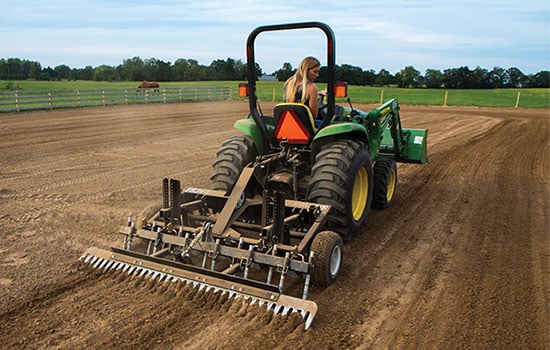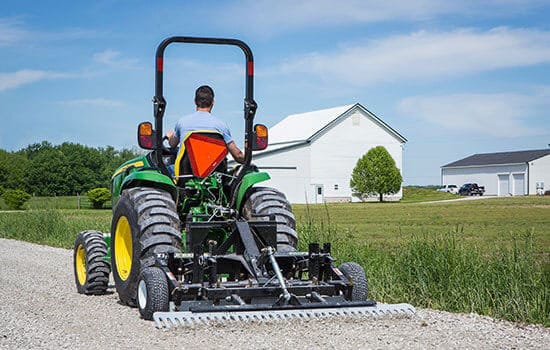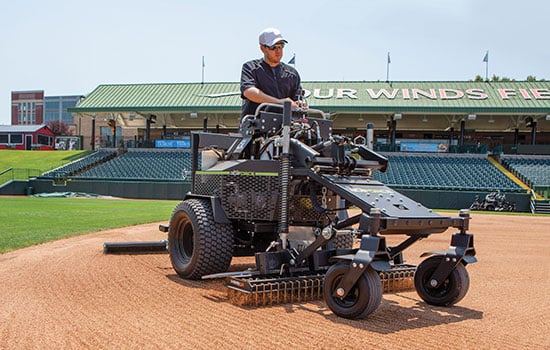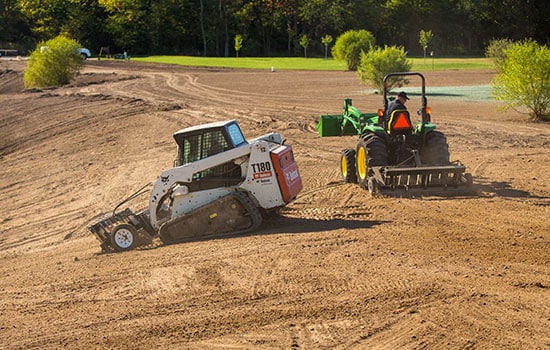Manure Spreading 101 – Three Tips for your Manure Management Plan – ABI Dirt
This episode of the ABI Dirt is a refresher on some positive and healthy manure management practices to keep your animals safe and to keep your property clean. We walk through a couple of tips that will help you make sure you’re taking the best care of your property and your horses or livestock. We also cover how a proper manure management plan can reduce the number of flies, improve the quality of your pastures, keep your horses or livestock healthier, and help you make the best use of your available space.
Transcript
Hi everyone, Matt here with ABI Attachments. Welcome back to another episode of The ABI Dirt. On today’s episode, we are talking about getting your manure out of the barn. That’s right. We’ve got actually a number of comments from a lot of you that you are either new to an operation where you’ve got animals around, new to manure hanging around your property and you don’t necessarily like it. Or some of you are just asking some great questions about what is the best way to manage the manure that you’re working with.
Now, this may seem a baseline question for some of you. For those of you who grew up on properties and grew up on farms, where you had animals around all the time, you know what to do, you muck the stall, you get it in and you get it out of the way and you move on with the chores. But, and for those of you who don’t know, there’s actually been here recently in the past couple of years with everything that’s going on all over the world, a huge number of people that are moving out out of the city and buying property for the first time. So for those of you who are new to owning horses or owning livestock. For those of you who are new to kind of the rural lifestyle, maybe this is the first time you’ve had a barn with stalls and you’ve got a whole lot of poop that you’ve never had to deal with before consider this a primer. And for those of you who have maybe had horses a while or livestock for a while now, and you just want a refresher on maybe some positive and healthy manure management practices to keep your animals safe, to keep your property clean.
We’re gonna walk through a couple of steps that you can take today to make sure you’re taking the best care of your property and your horses or livestock. So today I’m gonna offer up three different things to keep in mind as you’re trying to make a plan to manage the manure you now have on your property.
So, first thing that you may notice on your property if you’ve got manure that you’re dealing with that you haven’t had to deal with in the past are flies. Now, right now, I realize now’s not the season for flies but it will be shortly. As long as there’s snow on the ground were okay. But very soon as things warm up, you might find yourself in a situation where you’ve got more flies buzzing around than what you want. And what most people don’t realize is you can actually take an active role in keeping the number of flies that you’re messing with down. So you don’t have to worry about all that annoyance. So positive and healthy manure management practice can actually help you reduce the number of flies you’re dealing with on your property.
Remember flies primarily lay their eggs and the larva grows inside of hot manure. And I know that’s a really disgusting phrase. Sorry. It just, that’s reality. So if you can get rid of manure piles around your property, you stand a better chance of keeping the flies down which is better for you and better for all the animals on your property. So one of the best ways there to keep that manure problem down is to either, if you have a compost pile, rotate it regularly or B, to not pile up at all and actually spread regularly on your property and we can get to pasture health here in a second.
The second thing you may be noticing again if you’re new to property management, new to manure management planning, is that you’re just trying to get the chores done, right? So you are mucking the stalls, throwing the muck into a wheelbarrow, going out and dumping it. But as that pile grows, you’re getting to have a bit of an unsightly mess outside the back of the barn. Where did you pile it originally? Should it be piled there? What does that look like in the property to have have manures stacked up in a place that you may not want manure stacked up any longer?
And if you don’t have a very large property then your space may be coming at a premium. For those of you with, you know, dozens and dozens of acres that might not be an issue for you, but for those of you who only have an acre two, three and you’re trying to have your animals on that property with a little bit of pasture ground, there might be a lot of space to pile up your manure. That’s another benefit to you spreading out the manure as quickly as possible. So you can maximize the square footage you do have around your property.
And that brings us to the third observation that you may have as you’re taking a look at the new property, or maybe a property you’ve had for a while, but you’ve just now added animals. And that’s the use of your pasture. If you are trying to turn out your horses or have your livestock have healthy grass out there to munch on throughout the year, you need to make sure that that grass and that soil is as healthy as possible. And that’s where that manure that you’ve been mucking out day in and day out becomes brown gold. Ya heard me. We can use the manure that you you’ve already got and you’ve gotta deal with somehow and you can actually use it to benefit your pasture.
There’s actually been talk lately how because of the worldwide supply chain issues, there’s a shortage of fertilizers in the supply chain. They’re having trouble getting synthetic fertilizers to properties that need them. But if you have animals on your property, you have less need for synthetic fertilizers because you have all the fertilizer you need right there in the stalls, and you’re just pulling it out and mucking it out every day. So you can actually use that manure, spread it on your pasture and if done the right way you can maximize the health benefits of that manure to get your grass growing well and give your animals a healthy pasture to graze on.
That’s all we’ve got today everyone, as far as a primer goes of manure management for those of you who may be new to property management, to having livestock or courses on your property. If you have additional questions about manure management best practices, leave some questions in the comment section below. We would be happy to get you connected to a product specialist who can help address some of those issues. Also, please make sure to subscribe to this channel because over the next couple of weeks since we’re gearing up here for spring season, we’re going to be dropping a number of other videos on manure spreaders, what manure spreaders can do, what spreaders can’t do and how to figure out which manure spreader size is right for you. So stick around for those episodes as well. See you next time.



